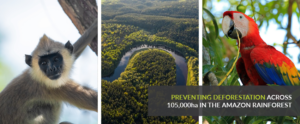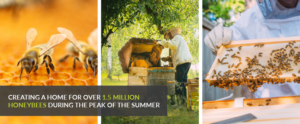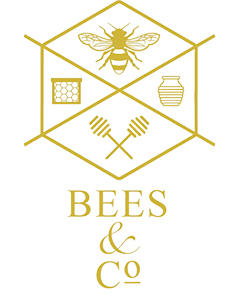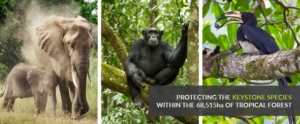Definition:
- Noun: keystone species; plural noun: keystone species.
- Biology: Keystone species are the most important components of any ecosystem. If the Keystone species is removed, it will trigger a chain of events which will have a significant impact on the surroundings.
- Lawyers helping the planet: An initiative launched by law firm, Keystone Law to actively support the wider environment through a series of actions and projects to encourage the longevity of the most important components of ecosystems.

Project 1: Amazon Rainforest
To continue our commitment to being a carbon neutral company and our pledge to support projects that preserve the keystone species, Keystone Law has once again offset the firm’s carbon emissions produced in 2023 by purchasing carbon credits in support of the Amazon Redd+ project in Brazil.
This project aims to prevent deforestation across 105,000 hectares of pristine rainforest in the Amazon basin, protecting some of the world’s most biodiverse habitats and the vital keystone species, including the Woolly Monkey, Amazon River Dolphins and the Scarlet Macaw. If the current rate of destruction continues, by 2030 only 65% of Brazil’s Acre state could be forested, compared to 90% currently.

The project’s vital work will mean local communities and groups will receive training on alternatives methods of economic sustainability, including granting land tenure for sustainable farming and understanding quality agricultural production methods, to help reduce poverty and hunger. As a result of quality education and economic support, it will help to avoid the destruction of the forest, which is endangering the keystone species and other vulnerable plants and animals.
As well as protecting life on land, the project will also help rehabilitate life below water, including degraded areas along the riverbank through reforestation activities, combatting riverbed erosion and polluting sediment levels in the water, while enhancing overall protection of watersheds through decreased deforestation.

Project 2: UK Honey Bees
The honeybee is one of the smallest keystone species and while it may be one of the smallest, its contribution to these ecosystems is vital. The honeybee pollinates plants, contributing to their survival. The plants then act as shelter for insects, which are eaten by other species, such as birds and other wild animals. Not only that, but an estimated one third of our food depends on pollination – aside from honey, there is a considerable amount of food that would disappear from our shelves completely should bees die out and it would cost farmers £1.8 billion to pollinate crops artificially.
In addition to supporting international projects, Keystone is proud to be investing in a natural sustainability solution for carbon offsetting and to be supporting the UK environment and domestic businesses.

To help one of the smallest of the keystone species thrive, Keystone Law has adopted 20 honeybee hives from Bees & Co., the world’s first certified carbon neutral honey farm and home to the British honeybee.
The Keystone hives located at the Burghley Estate are handmade from British sustainable cedar wood, sourced from renewable energy suppliers and will become home to over 1.5 million honeybees during the peak of the summer.

Project 3: Gola Rainforest
In 2022, Keystone Law became a carbon neutral company by offsetting the emissions produced since the firm launched in 2002.
The emissions were offset through purchasing carbon credits which provide support to the Gola Rainforest REDD+ conservation project. This project aims to create a sustainable environment for the local community whilst also rebuilding, protecting and strengthening the ecosystem for the keystone species.

Conservation actions as a direct result of the Gola Rainforest REDD+ project will protect the keystone species within the 68,515 ha of tropical forest, including the African forest elephant, pygmy hippos, chimpanzees and the hornbill bird as well as other critically endangered animals. The project’s vital work will also provide livelihood support to the 114 impoverished communities that surround the Gola Rainforest National Park by helping them to adopt more sustainable production and farming techniques, and to develop ecotourism and other income-generating activities.


